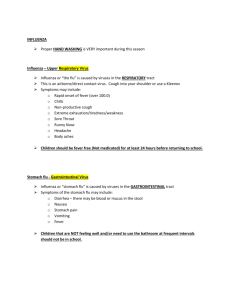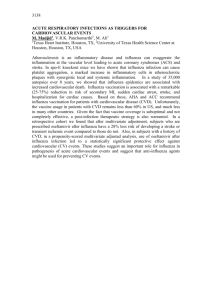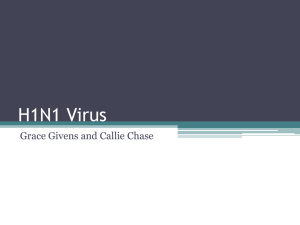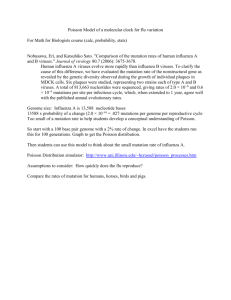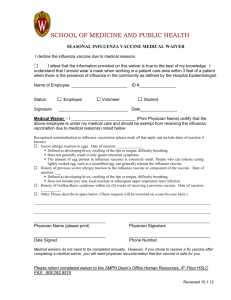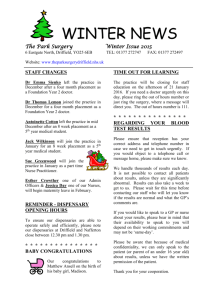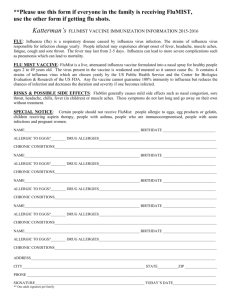What is influenza? - St Maria Goretti Catholic Academy
advertisement
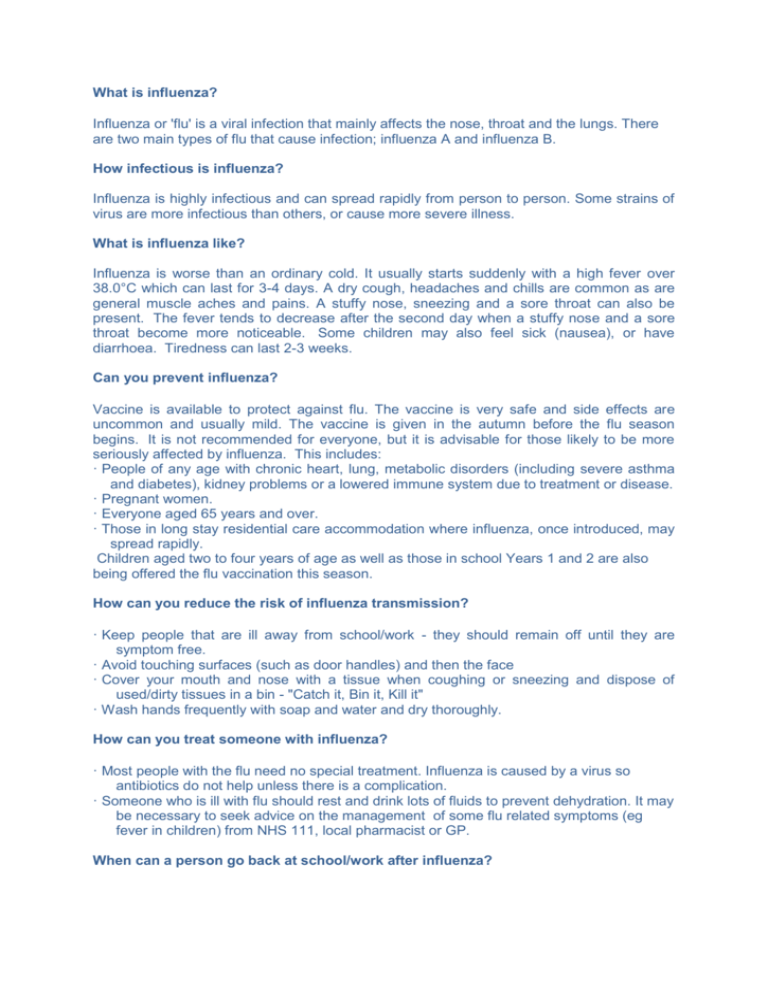
What is influenza? Influenza or 'flu' is a viral infection that mainly affects the nose, throat and the lungs. There are two main types of flu that cause infection; influenza A and influenza B. How infectious is influenza? Influenza is highly infectious and can spread rapidly from person to person. Some strains of virus are more infectious than others, or cause more severe illness. What is influenza like? Influenza is worse than an ordinary cold. It usually starts suddenly with a high fever over 38.0°C which can last for 3-4 days. A dry cough, headaches and chills are common as are general muscle aches and pains. A stuffy nose, sneezing and a sore throat can also be present. The fever tends to decrease after the second day when a stuffy nose and a sore throat become more noticeable. Some children may also feel sick (nausea), or have diarrhoea. Tiredness can last 2-3 weeks. Can you prevent influenza? Vaccine is available to protect against flu. The vaccine is very safe and side effects are uncommon and usually mild. The vaccine is given in the autumn before the flu season begins. It is not recommended for everyone, but it is advisable for those likely to be more seriously affected by influenza. This includes: · People of any age with chronic heart, lung, metabolic disorders (including severe asthma and diabetes), kidney problems or a lowered immune system due to treatment or disease. · Pregnant women. · Everyone aged 65 years and over. · Those in long stay residential care accommodation where influenza, once introduced, may spread rapidly. Children aged two to four years of age as well as those in school Years 1 and 2 are also being offered the flu vaccination this season. How can you reduce the risk of influenza transmission? · Keep people that are ill away from school/work - they should remain off until they are symptom free. · Avoid touching surfaces (such as door handles) and then the face · Cover your mouth and nose with a tissue when coughing or sneezing and dispose of used/dirty tissues in a bin - "Catch it, Bin it, Kill it" · Wash hands frequently with soap and water and dry thoroughly. How can you treat someone with influenza? · Most people with the flu need no special treatment. Influenza is caused by a virus so antibiotics do not help unless there is a complication. · Someone who is ill with flu should rest and drink lots of fluids to prevent dehydration. It may be necessary to seek advice on the management of some flu related symptoms (eg fever in children) from NHS 111, local pharmacist or GP. When can a person go back at school/work after influenza? Influenza is most infectious when symptoms start until about 3-5 days later. There are no recommended times of exclusion: a person should return once they are well enough.
